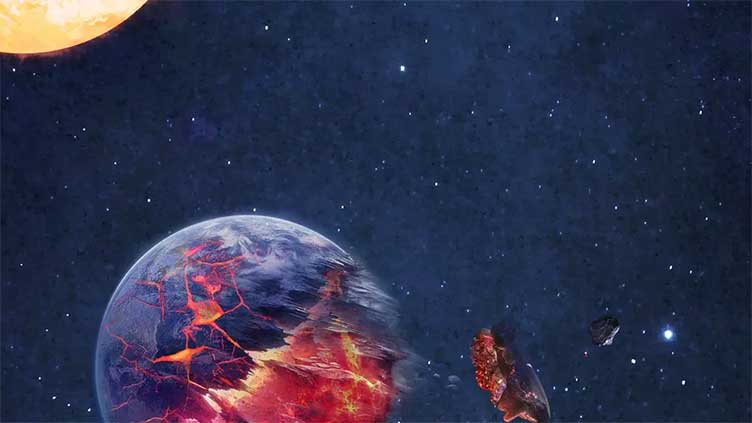Cosmic cannibals: Study reveals twin stars devouring planets

Technology
An intriguing discovery reveals 'twin' stars may consume orbiting planets
(Web Desk) - An intriguing discovery has emerged from the depths of space, challenging our understanding of planetary system dynamics and stellar behavior.
Scientists have identified instances where 'twin' stars — pairs of stars born from the same interstellar cloud and sharing similar chemical compositions and masses — exhibit signs of having consumed one or more of their orbiting planets.
This revelation, published in the prestigious journal Nature, unveils a darker side to the life cycles of planetary systems and offers new insights into the cosmic dance between stars and their planetary companions.
At the heart of this study lies an exhaustive analysis of 91 co-natal star pairs, conducted with the aid of the European Space Agency's Gaia space observatory and ground-based telescopes in Chile and Hawaii.
The research team, led by astronomer Fan Liu of Monash University in Australia, embarked on a quest to uncover the chemical fingerprints left behind by planetary consumption.
Their findings were startling: about 8% of these stellar duos showed evidence that one star had ingested material from a planet or protoplanetary body, as indicated by abnormal levels of elements such as iron, nickel, and titanium.
The study sheds light on the precarious nature of planetary orbits and the factors that can lead to a planet's demise.
Orbital disturbances, whether caused by larger planets within the same system or by the close approach of another star, can eject a planet from its stable orbit, setting it on a collision course with its sun.
This research not only underscores the instability that can plague planetary systems but also highlights the remarkable stability of our own solar system — a stability that is far from guaranteed in the vastness of the universe.
The implications of these findings are profound, extending beyond the immediate fate of the devoured planets.
The study offers a window into the complex dynamics that govern the evolution of planetary systems and the chemical enrichment of stars.
Furthermore, it suggests that the phenomenon of stars consuming their planets may be more common than previously thought, providing valuable insights into the lifecycle of stars and the ultimate fate of their orbiting bodies.
As stars like our sun eventually expand and potentially engulf their nearest planets, the fate of Earth remains a poignant reminder of the cosmic forces at play.
This groundbreaking research not only enriches our understanding of the cosmos but also prompts a deeper reflection on the delicate balance that allows planetary systems like our own to exist.
As we continue to explore the universe, studies like these remind us of the dynamic and often violent nature of cosmic evolution, offering glimpses into the myriad ways that stars and planets interact over astronomical timescales.


